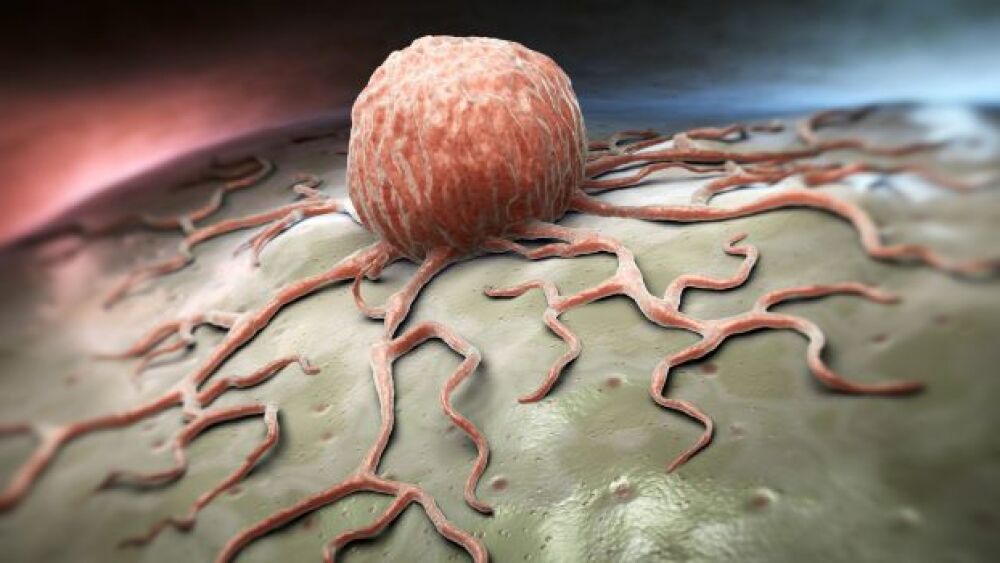Invectys is one of only a few companies investigating HLA-G, a natural immune checkpoint inhibitor, for solid tumors.
“We want to be the company that helps eradicate cancer,” Praveen Tyle, Ph.D., president and CEO of Invectys, Inc. said during a recent presentation hosted by the Force Family Office. Invectys is one of only a few companies investigating HLA-G, a natural immune checkpoint inhibitor, for solid tumors.
The need for yet another immune checkpoint inhibitor is based on their success rates. Although CAR-T cell therapies have generated significant partial and complete responses in many patients, there are certain barriers that limit their effectiveness. Specifically, Tyle said, “Solid tumors are protected by physical and suppressive barriers blocking immune infiltration and functions.”
Invectys’ HLA-G-focused pipeline has the potential to overcome that hurdle with a pipeline for solid tumors. The underlying technology was developed at the Pasteur Institute in Paris, and early research suggests the compound induces high, robust anti-tumor immune responses. A slide from a preclinical study showed the complete eradication of lung metastasis in renal cell carcinoma mice models by day 17. The expectation is that it will be effective against most tumor types since solid tumors account for approximately 90% of all carcinomas.
As Tyle explained, during pregnancy, “HLA-G can inhibit immune cells and create a protected environment for the fetus.” Basically, it protects the fetus from the mother’s immune system by inhibiting B cells, T cells, NK cells, monocytes and neutrophils. It also recruits suppressive antigen-presenting cells and regulatory T cells.
In cancer, however, the attributes of HLA-G that protect the growing baby are hijacked by tumors, allowing them to evade immune responses.
HLA-G is a tumor-specific antigen that is present in abundance on solid tumors but is low or absent on major healthy tissues. Subsequently, targeting HLA-G should have few off-target effects. In contrast, PDL-1, a frequent target among drug developers, is expressed on cancer cells but also is expressed on many healthy cells.
“Targeting HLA-G is like killing two birds with one stone,” Tyle elaborated, because “HLA-G is not only an immune checkpoint but also a tumor-specific antigen. Therefore, “This therapy has enormous potential as an immunotherapy for numerous cancer types and should produce better efficacy and little toxicity.”
The company’s lead product, IVS-3001, is a CAR construct engineered to target HLA-G. The goal for this autologous therapy is for it to be a single dose. It is scheduled to enter a clinical trial later this year for renal cell carcinoma and ovarian carcinoma.
A second product, IVS-5001, is an anti-ILT4 nanobody derived from immunoglobulins found in alpacas and other camelids. These nanobodies are about one-tenth the size of other antibodies and, therefore, can penetrate tissues more easily and bind to areas of antigens that larger antibodies cannot access.
Tyle said he expects to file an investigational new drug application (IND) with the FDA in 2023. “ILT4 is a key receptor for HLA-G and presents on the surface of most tumor cells. It is also known as leukocyte immunoglobulin-like receptor B32,” he added. Inhibiting ILT4 results in the repolarization of human macrophages from a suppressive M2 to pro-inflammatory M1-enhancing anti-tumor immunity.
“IVS-5001 is a high-affinity nanobody to ILT-4,” Tyle said. Compared to monoclonal antibodies (mAbs), nanobodies offer high antigen specificity and affinity, solubility and robustness, blood-brain barrier permeability, vascular permeability, high tumor penetrability and a short half-life in the bloodstream, among other attributes. These features make them attractive as a potential treatment for glioblastoma, and for combination with other checkpoint inhibitors.
At this stage, he said IVS-5001 appears to inhibit tumor proliferation, migration and invasion and causes apoptosis of ILT4+ tumor cells. It also may help restore immune response. An IND-enabling study plan is being drafted.
A third program, IVS-4001, is designed to treat early-stage tumor development. It is an anti-HLA-G mAb with high affinity to novel HLA-G isoforms, specifically b2m-free HLA-G1, HLA-G2, HLA-G5 and HLA-G6. Importantly, “It does not cross-react with classical HLA molecules,” Tyle said. The molecule is expected to block innate, humoral and cellular responses; angiogenesis; antigen-presenting cell (APC) responses; and inhibit suppressive immune cells and tumor microenvironment inductions. He said he expects to file an IND for that product in the latter half of 2023.
“All of these programs should be eligible for Fast Track Designation,” Tyle added.
Invectys is headquartered in Texas, as a stipulation attached to the nearly $14.2 million grant it received from the Cancer Prevention and Research Institute of Texas in 2020. Tyle said there are six senior people located in Houston, while more than 20 people remain in Paris at the company’s R&D laboratory.






